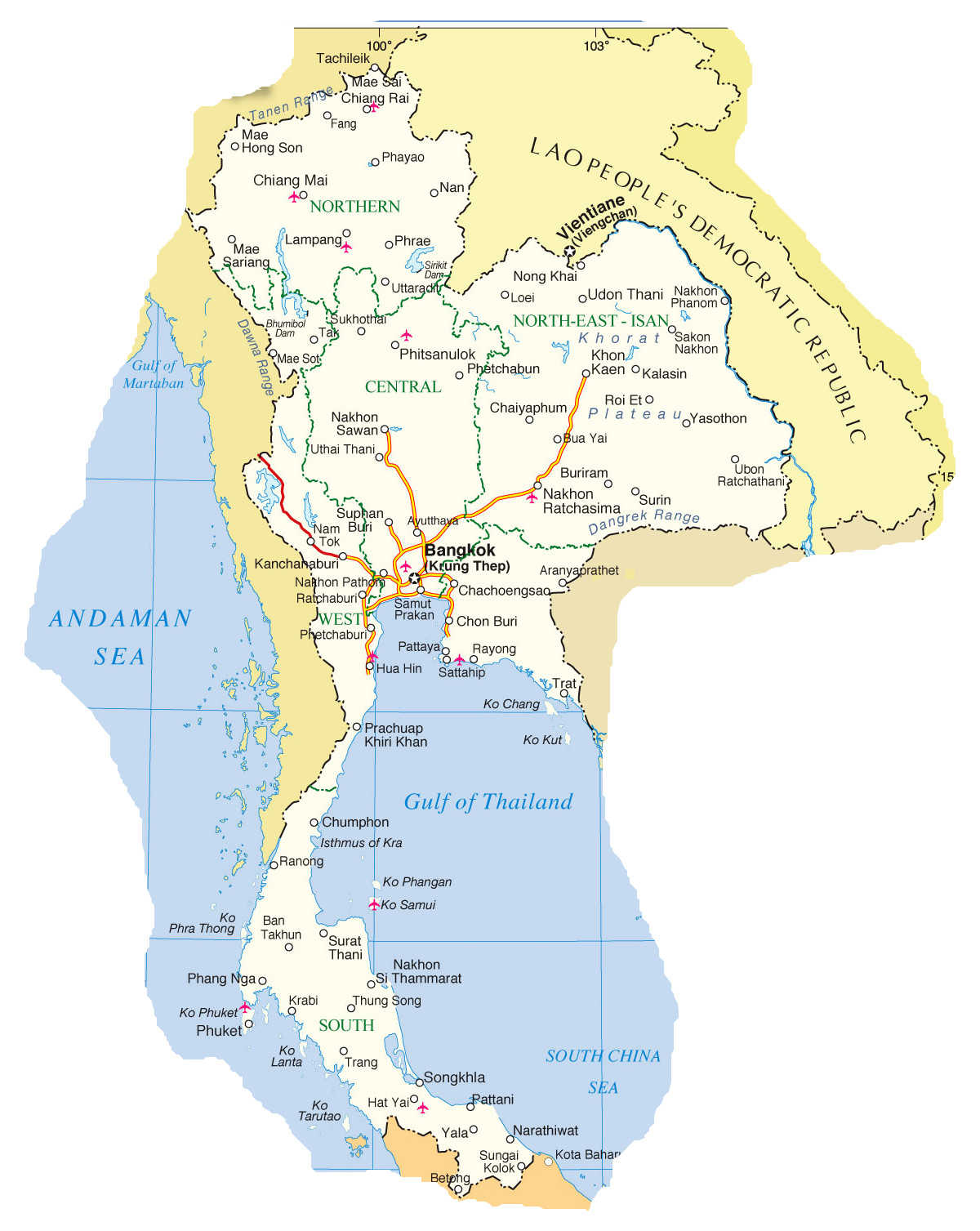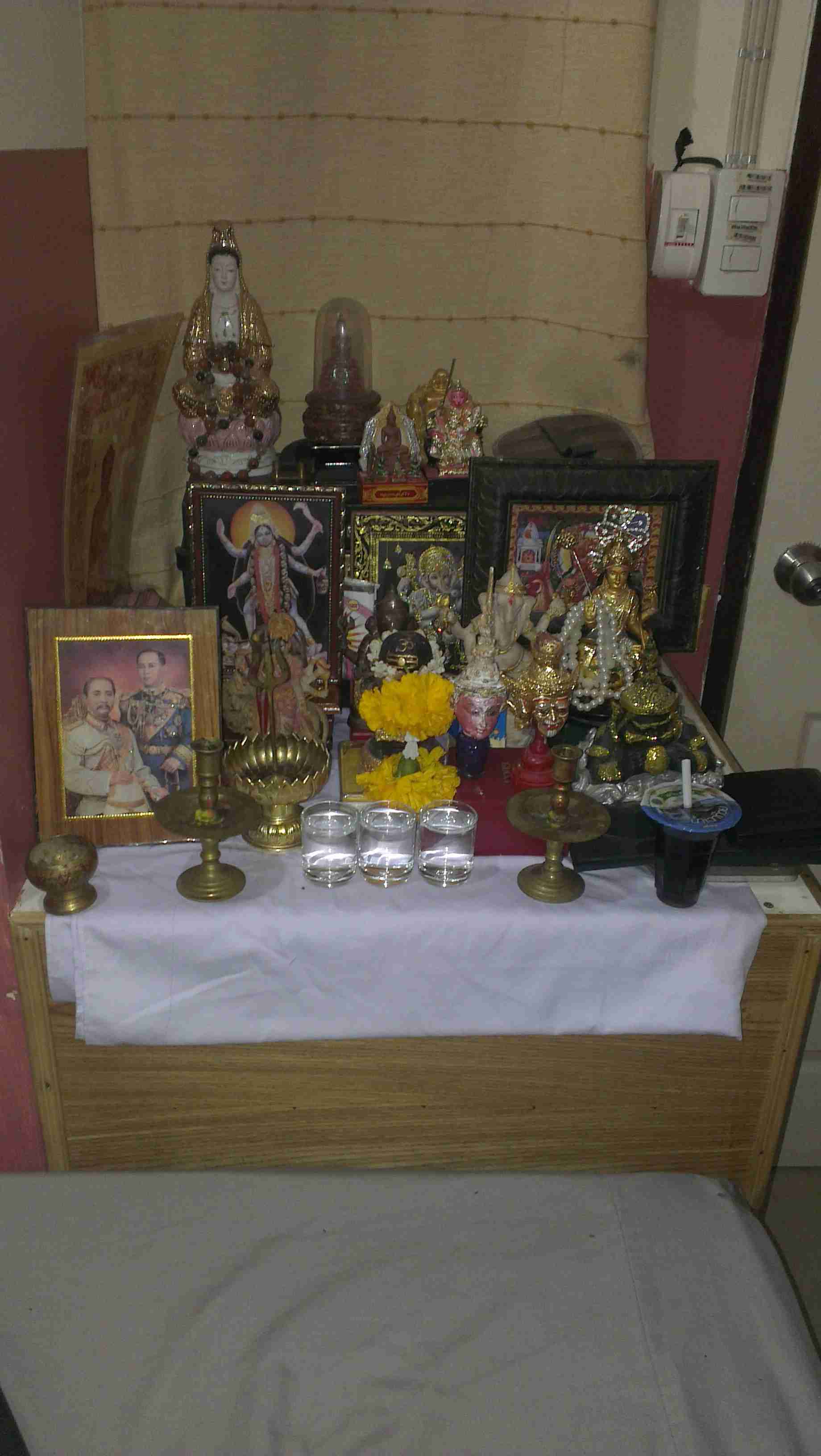As Isan prospers, sex tourism set to decline in Bangkok
Singapore, along with China and Japan, sends most visitors there
Map of Thailand, showing north-eastern part of Isan
With the BRICs – an acronym for Brazil, Russia, India and China, dubbed by Goldman Sachs – showing signs of economic slow down, the world's attention is focussed on the ten next-biggest emerging economies including Thailand. Besides Bangkok, which topped this year’s Global Destination Cities Index, published by MasterCard, with projected 15.98 million international overnight visitors [mostly from China, Singapore and Japan] in 2013, the economic renaissance of Thailand is being propelled by its poorest and most populous north-east region, Isan.
According to the Bangkok Post's midyear economic review, economic growth and monthly household income in Isan climbed 40 percent from 2007 to 2011, in comparison to 23 percent for the country, and just 17 percent for Greater Bangkok. Also, private investment projects increased by 49 percent in 2012 as compared to the previous year and the total amount invested more than doubled to US$2.3 billion.
Isan, which formed the core of 'Red Shirt movement' and backed Prime Minister Yingluck Shinawatra ruling Puea Thai Party in the 2011 election, also enjoyed benefits from her government's populist policies including free health-care, low-interest loans and a 300 baht daily minimum wage law, resulting in 35 percent wage rise.
As Isan witnesses such a huge economic ramping up, with another 2.2 trillion baht infrastructure programme in the pipeline, the region is set to become an entry point to Thailand, replacing Greater Bangkok. Already, local companies such as Siam Cement and Thai Beverage, along with foreign firms such as Fraser & Neave and Panasonic, are moving their business interests to the north-east region of Thailand.
This is good news to almost a third of Thailand's 68 million people who reside in Isan. More so, for the majority of women working in brothels, bars and massage parlours across Bangkok who hail mainly from the impoverished villages of Isan, bordering Laos.
Aree, who is the owner and manager of one such traditional Thai massage parlour on Sukhumvit Soi 5, Buathip, which has been in operation since 1985 explains, ”Almost all girls in our business are from the 20 provinces of Isan and everyone, without exception, comes from a very impoverished background. Since prostitution is illegal, more than 90 percent bars and massage parlours in Bangkok's notorious red districts of Nana, Asok and Sukhumvit serve as a front for this business. To make it worse, majority of bar and massage parlour owners don't pay the masseuse anything. They earn only by providing sexual services to massage clients.”
“Ironically, the go go bars on Sukhumvit Soi 23, which are nothing but a front for prostitution, have a banner as you enter the road, which proudly states 'Safety Zone – Thonglor Police Station'. The policemen have their business interests tied-up with these sex-mafias so they turn a blind-eye to all this. Thus on the face of it, while it seems that there is not much exploitation in Thailand's sex industry, the reality is quite different.”
Aree, on his part, strongly disapproves of any kind of sexual activities in Buathip and has signboards stating 'No sex please' in his parlour. His masseuses also get about 40 percent of what he charges for every massage. But sadly, he is in minority.
There are various massage parlours lined up on Sukhumvit Soi 24, which don't even do a charade of providing anything other than sexual services. “There are various massage parlours on that road with names such as Mango, Pink, Orchard, Addict, which don't even have a rate card for massage services. They only offer sexual services. How are they being allowed to operate, is beyond comprehension,” Aree added. His feeling is shared by other owners who operate “clean” massage parlours such as Pooja Massage on Soi 24 in Sukhumvit and Urban Retreat near Phrom Phong. All their masseuses possess certificates of practice, some from the highly renowned Wat Po Thai Traditional Medical and Massage School.
A small corner in a rented room with 16 gods and goddesses, as well as the Thai king. The occupant is Nah, a “freelance” prostitute who ply her trade in Nana and Sukhumvit areas of Bangkok targeting foreign sex-tourists. She comes from a small village near Udon Thani in Isan. With no father around, she is the sole bread earner for her family of two younger siblings and an ailing mother. “My favourite is the Hindu goddess Kali. Whenever I feel down and loose all hope, she inspires me. Soon, I will return to Isan and give my life a fresh start,” she says.
Also, as mandated by the Social Security Act of 1990, all “clean” massage parlours have social security coverage, under which the employers and employees each contribute 5 percent of monthly income to the Social Security Office (SSO). The government also contributes 2.75 percent monthly. While 60 percent of the monthly income deductions go towards government’s pension scheme, the SSO funds also cover sickness, serious injuries in which beneficiaries become invalid, death, children’s allowances, and unemployment.
So as Isan booms, most masseuses in Bangkok are looking at a better life back home.
Lek, who is a masseuse in one of the “not-so-clean” massage parlours in Sukhumvit admits candidly, ”My owner gives me only 100 baht every month and tells me to earn from clients by providing 'other' services. I am using my time in Bangkok to learn some English and will soon return to Isan to be with my family. May be, with my improved language skills, I can get a job as a sales assistant in the upcoming malls in Isan.”
Thailand red-light industry rose during the Vietnam War when US soldiers came to the country for some “Rest and Recreation” (or R&R, as it came to be called) and “release” the stresses of war. After the war, Thailand became a sex-haven for paedophiles, child sex slavery, and human trafficking became rampant, and HIV exploded. Finally, following a number of exposés, international media coverage and non-governmental interventions in the 1990s, the government cracked down on child prostitution and human trafficking. But the country still has a long way to go before its sex tourism image changes, as evident by the latest controversy over a comedy skit on US television show Saturday Night Live. The show made fun of Thailand's sex tourism image and showed men learning Thai language just to get-by in some of Thailand’s red-light areas.


